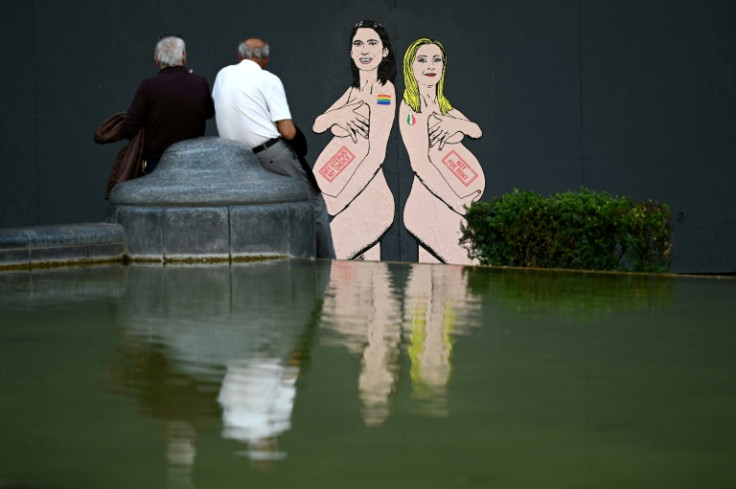Italian MPs Back Surrogacy Ban On Couples Going Abroad

Italian lawmakers on Wednesday backed a bill to extend the country's ban on surrogacy to couples who seek it abroad, sparking warnings the move was unconstitutional and would damage children's rights.
The bill, which passed the lower house of parliament and now heads to the Senate, would make Italians who seek surrogacy in other countries liable for prosecution on their return home.
It was put forward by the far-right Brothers of Italy party of Prime Minister Giorgia Meloni, the self-described "Christian mother" who won September elections on a campaign of nationalism and traditional family values.
Brothers of Italy MP Elisabetta Gardini on Wednesday condemned surrogacy as a "uterus for rent" that "outrages the dignity of women and tramples on the rights of children".
Another party member in March said that surrogacy, where a woman carries to term a pregnancy on behalf of others, was crime "even more serious than paedophilia".
Under 2004 legislation, anyone involved in surrogacy in Italy faces three months to two years in jail and a fine ranging from 600,000 euros ($664,000) to one million euros.
Critics said extending the ban to people using surrogates abroad was impractical and unconstitutional, and accused Meloni's right-wing coalition of political posturing.
Stefania Ascari of the opposition Five Star Movement called it a "huge legal mess" which was "above all hugely harmful to the rights of minors" who might arrive in Italy to see their parents arrested.
Until now, Italians who can afford it have been able to travel to countries where surrogacy is allowed, such as the United States or Canada.
Media reports suggest the vast majority are heterosexual couples who cannot have children themselves.
However, the new proposal has sparked alarm among LGBTQ activists who have been warning of moves to erode civil rights since Meloni took office in October.
Ahead of the debate, a few hundred people gathered Tuesday evening in front of Rome's Pantheon to protest the bill, many waving rainbow flags.
Among them was Mario Colamarino, 32, a gay man who said he would one day like to have his own children, who called the anti-surrogacy bill "a pretext, a state homophobia against us".
"Instead of dealing with the climate... fires, serious problems, gas prices, the government sees fit to deal with these things, an issue that concerns few people," he told AFP.
Fabrizio LaPaglia, 60, a gay man with children from an earlier marriage with a woman, said he was at the protest to support all those seeking the right to surrogacy, whether homosexual or straight.
"This government is strongly supported by pro-life associations, they are fundamentalists who want to make decisions about a woman's body and the LGBT community," LaPaglia said.
The issue is part of a wider unsolved problem in Italy, which lacks a law to recognise the children of same-sex couples.
That leaves them in legal limbo with only the biological parent registered on their birth certificates, forcing the other to embark on the lengthy and costly process of adoption.
In the absence of clear policy, some cities, including Milan, Turin and Padua, had been registering the children of same-sex couples conceived overseas through surrogacy.
But an interior ministry directive in March instructed municipalities to stop, and some parents' names have since been eliminated from city registers -- a distressing move which also creates bureaucratic problems for the excluded parent.
Civil unions have been allowed in Italy since 2016 but same-sex couples cannot marry, or adopt.
Medically assisted reproduction -- in which a donated egg or sperm is used -- is legal for heterosexual couples but not for same-sex couples or single women.
© Copyright AFP 2024. All rights reserved.





















